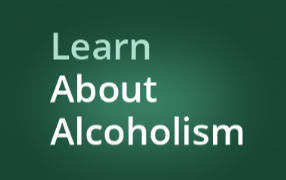Depression and Alcoholism
There is a direct correlation between depression and alcoholism with up to fifty percent of alcoholics exhibiting symptoms of major depression during a given period of time.
Alcohol and depression do not mix well, however. Alcohol itself is a depressant and can exacerbate existing cases of depression. On the other hand, many alcoholics drink to “self-medicate” in order to cope with things like depression.
When depression and alcoholism exist together, it is known as co-morbidity, meaning two diseases that exist in the same person. While we know a lot about alcoholism and a lot about depression, not as much is known about co-morbidity. It is more than simply the sum of the two. Alcoholism and depression interact with each other in what can often be a complex way. The two illnesses cannot be treated separately; successful treatment must take into account the relationship between the two.

Understanding Alcoholism and Depression
Fatigue, restlessness, low energy, lack of appetite, and suicidal thoughts are indicators that alcohol and depression may be present.
Heredity plays an important role in the onset of alcoholism and depression. Family history increases the propensity to develop either or both disorders. In addition, each condition has the potential to exacerbate the other:
- Heavy, frequent drinking increases the vulnerability to become depressed, considering alcoholism’s debilitating impact on overall health and emotional well-being, work and relationships. Add to this the fact that alcohol is actually a depressant, and it’s easy to see why alcoholics may become depressed.
- Individuals who suffer from stress, anxiety, or depression may use alcohol as a way to relax and escape from their problems. Yet, over time they will need to drink greater quantities to achieve the same results. This can lead to alcohol abuse or dependence.
People with depression and alcoholism have a heightened risk of suicide, vehicular accidents, as well as other harmful and risk-taking activities. Together, the illnesses can advance an existing depressive state, impair judgment and increase impulsiveness. Alcohol and depression can be a deadly combination.

Treating Depression and Alcoholism
Individuals should seek help immediately by contacting a healthcare professional to develop a treatment program that addresses both disorders. Alcohol and depression can work together to decrease motivation to seek treatment, however. A person suffering depression often feels hopeless and does not believe treatment will help.
A person suffering from alcoholism often denies that there is a problem requiring treatment. Yet, treatment is essential to recovery.
A typical treatment approach will include detoxification, specialized counseling, and often medication to facilitate recovery. While medication for depression can often be helpful, treatment providers need to be cautious about prescribing drugs to an addict. Some anti-depressants are highly addictive.
Treatment can be more challenging when individuals suffer from both depression and alcoholism. For those seeking treatment for alcoholism, depression may enhance the chance of a relapse in recovery.
Because of the unique challenges of dealing with both disorders, it is important to seek treatment from healthcare providers with training and experience in treating alcohol and depression together. Not all treatment providers understand the relationship between the two.
Also, people in the early stages of alcohol withdrawal and recovery may experience advancing symptoms of depression. These symptoms typically subside within a month of stopping consumption, though.
Being aware that the symptoms will likely pass can help the alcoholic cope with them. If symptoms do not pass, however, treatment for depression should be sought.
We cannot stress enough the importance of seeking treatment for alcoholism and depression. These are illnesses that rarely, if ever, improve without treatment. Without proper treatment, they can be devastating. Good treatment is available, though, and will greatly improve the chances of recovery.

I am a Mental Health Counselor who is licensed in both New York (LMHC) and North Carolina (LCMHC). I have been working in the Mental Health field since 2015. I have worked in a residential setting, an outpatient program and an inpatient addictions program. I began working in Long Island, NY and then in Guelph, Ontario after moving to Canada. I have since settled in North Carolina. I have experience working with various stages of addiction, depression, anxiety, mood disorders, trauma, stages of life concerns and relationship concerns.
I tend to use a person-centered approach which simply means that I meet you where you are and work collaboratively to help you identify and work towards accomplishing goals. I will often pull from CBT when appropriate. I do encourage use of mindfulness and meditation and practice these skills in my own life. I believe in treating everyone with respect, sensitivity and compassion.
I recognize that reaching out for help is hard and commend you for taking the first step. We have professionals available who would be happy to help you move closer to reaching your goals related to your drinking concerns. You may reach these professionals by calling 877-322-2694.
